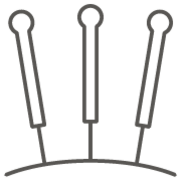
‘Individual acupuncture treatments crafted to address each patient’s internal landscape’
Traditional Chinese medicine (TCM) has a long history of treating gynaecological conditions, with records dating back over a millennium. Key aspects of TCM gynaecology include the understanding of the balance of Yin and Yang, the flow of Qi (energy) and blood, and the importance of the meridian system in maintaining gynaecological health.
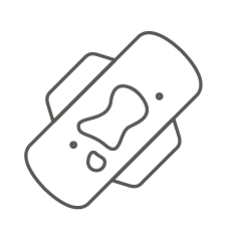
Menstrual Disorders
TCM can be used to address irregular menstruation, painful periods (dysmenorrhea), heavy periods, scanty periods, amenorrhea, and other menstrual irregularities.
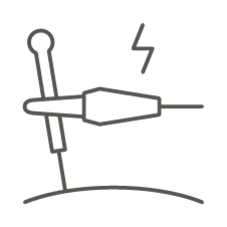
Infertility
Acupuncture is often employed to support fertility by addressing underlying imbalances in the body.
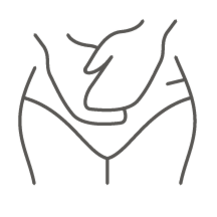
Menopausal Symptoms
TCM approaches menopausal symptoms, such as hot flushes, mood swings, brain fog, anxiety, tiredness, and sleep disturbances, with a focus on balancing Yin and Yang and supporting overall well-being.

Recurrent Miscarriage
TCM may be utilised to address underlying factors contributing to recurrent miscarriages.
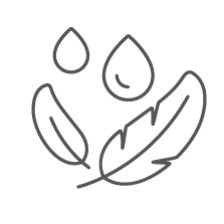
Polycystic Ovary Syndrome (PCOS)
TCM can be part of a holistic approach to managing PCOS by addressing hormonal imbalances and promoting overall health.
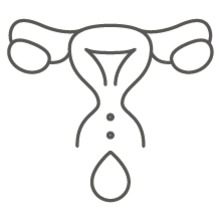
Endometriosis
TCM may offer support for managing symptoms of endometriosis, such as pelvic pain and infertility, by addressing Qi and blood flow.
It's important to note that while TCM has a rich history and is widely practiced today, individual responses to treatment can vary. Integrating TCM with conventional medical approaches is common.
Tiredness / Fatigue
Tiredness and fatigue are common complaints that can result from a variety of factors, both physical and mental. Traditional Chinese Medicine (TCM) views fatigue as a sign of imbalance in the body, often related to disruptions in the flow of Qi (energy) and blood or imbalances in Yin and Yang. Here are some TCM perspectives on tiredness and fatigue and how they might be addressed:
Qi Deficiency
In TCM, fatigue is often associated with Qi deficiency, where the body's vital energy is insufficient. This can result from factors such as poor diet, excessive stress, overwork, or chronic illness. Acupuncture can be used to tonify Qi and restore balance.
Blood Deficiency
Tiredness can also be linked to blood deficiency, which may be caused by factors like poor nutrition, blood loss, or menstrual irregularities. TCM treatments may involve nourishing the blood through specific acupuncture points.
Yin-Yang Imbalance
The balance of Yin and Yang is fundamental in TCM. Fatigue may arise from an imbalance between these two opposing forces. Acupuncture and lifestyle recommendations, such as dietary adjustments and stress management, may be used to restore harmony.
Organ Disharmony
TCM attributes specific functions to different organs, and fatigue may be linked to disharmony in one or more of these organs. For example, fatigue associated with the spleen and stomach may be related to digestion issues. Acupuncture can be used to address organ imbalances.
Stagnation of Qi and Blood:
Fatigue can result from stagnation of Qi or blood, often caused by emotional factors such as stress or unresolved emotions. Acupuncture is believed to help release blockages and promote the smooth flow of Qi and blood.





